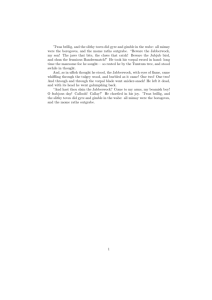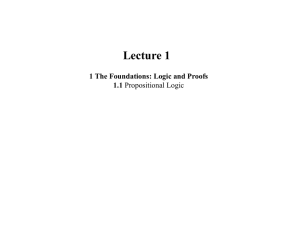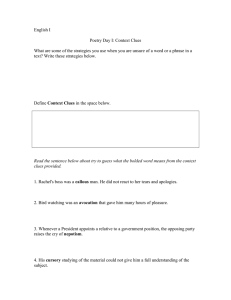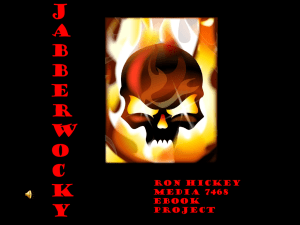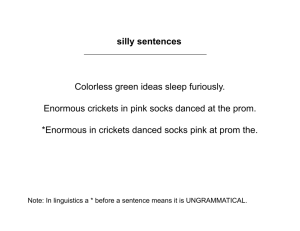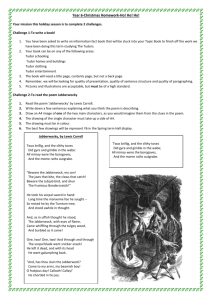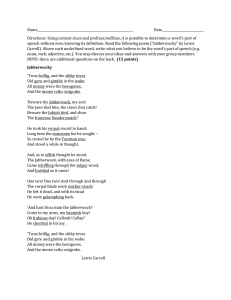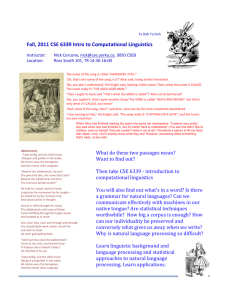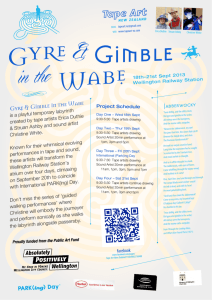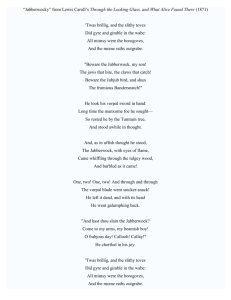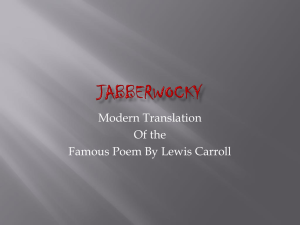Parts of Speech Activity: “The Jabberwocky” Part I. Read the Poem
advertisement
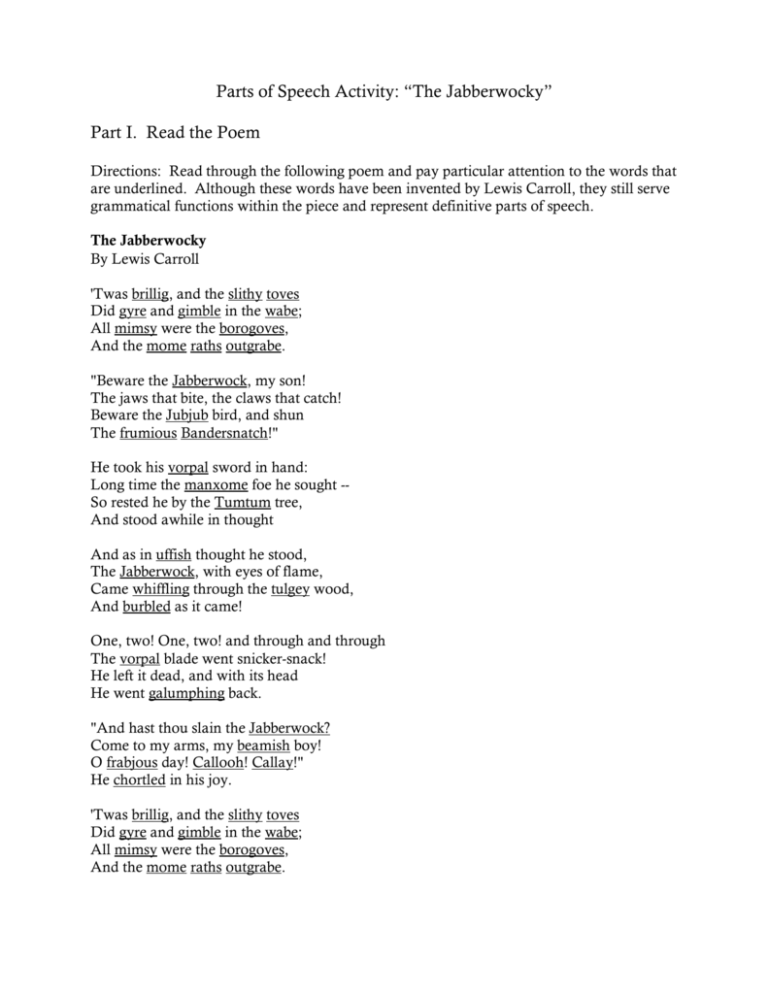
Parts of Speech Activity: “The Jabberwocky” Part I. Read the Poem Directions: Read through the following poem and pay particular attention to the words that are underlined. Although these words have been invented by Lewis Carroll, they still serve grammatical functions within the piece and represent definitive parts of speech. The Jabberwocky By Lewis Carroll 'Twas brillig, and the slithy toves Did gyre and gimble in the wabe; All mimsy were the borogoves, And the mome raths outgrabe. "Beware the Jabberwock, my son! The jaws that bite, the claws that catch! Beware the Jubjub bird, and shun The frumious Bandersnatch!" He took his vorpal sword in hand: Long time the manxome foe he sought -So rested he by the Tumtum tree, And stood awhile in thought And as in uffish thought he stood, The Jabberwock, with eyes of flame, Came whiffling through the tulgey wood, And burbled as it came! One, two! One, two! and through and through The vorpal blade went snicker-snack! He left it dead, and with its head He went galumphing back. "And hast thou slain the Jabberwock? Come to my arms, my beamish boy! O frabjous day! Callooh! Callay!" He chortled in his joy. 'Twas brillig, and the slithy toves Did gyre and gimble in the wabe; All mimsy were the borogoves, And the mome raths outgrabe. Part II. Identify the Part of Speech Directions: The invented words from the poem are provided below. Using the context clues in the sentence, identify the part of speech of each word and write it in the space provided. Word 1. brillig 2. slithy 3. toves 4. gyre 5. gimble 6. wabe 7. mimsy 8. borogoves 9. mome 10. raths 11. outgrabe 12. Jabberwock 13. Jubjub 14. frumious 15. Bandersnatch 16. vorpal 17. manxome 18. Tumtum 19. uffish 20. whiffling 21. tulgey 22. burbled 23. galumphing 24. beamish 25. frabjous 26. Callooh! 27. Callay! Part of Speech 28. Chortled Part III. Rewrite the poem with real words Directions: Using your knowledge of the parts of speech as a guideline, now substitute the invented words with real words that could actually fit in the context of the poem. This means that the words you enter must be of the same part of speech as the imaginary word they are replacing. 'Twas , and the Did and All were the in the ; , And the . "Beware the , my son! The jaws that bite, the claws that catch! Beware the bird, and shun The !" He took his sword in hand: Long time the foe he sought -- So rested he by the tree, And stood awhile in thought And as in The thought he stood, , with eyes of flame, Came through the And as it came! wood, One, two! One, two! and through and through The blade went snicker-snack! He left it dead, and with its head He went back. "And hast thou slain the ? Come to my arms, my boy! O day! He in his joy. 'Twas , and the Did and All And the . ! !" in the were the ; ,
